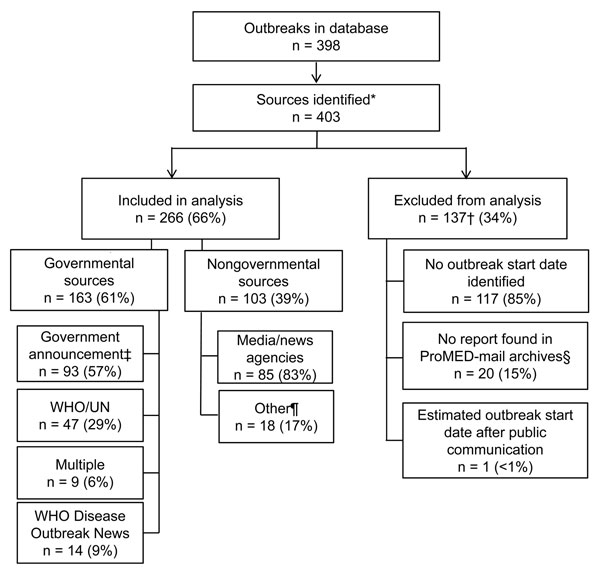Volume 18, Number 7—July 2012
Dispatch
Timeliness of Nongovernmental versus Governmental Global Outbreak Communications
Figure 1

Figure 1. . . Exclusion criteria applied to database of 398 outbreak events publicly reported through the World Health Organization (WHO) Disease Outbreak News during 1996–2009 and breakdown of nongovernmental and governmental sources used to compare the timeliness of outbreak communications. UN, United Nations. *More than one source may be identified for a given outbreak; †categories for exclusion are not mutually exclusive; ‡health officials, ministries of health, laboratories, hospitals, etc.; §included in sensitivity analysis; ¶includes nongovernmental organizations, individual accounts, ProMED requests for information, and multiple sources.
Page created: June 12, 2012
Page updated: June 12, 2012
Page reviewed: June 12, 2012
The conclusions, findings, and opinions expressed by authors contributing to this journal do not necessarily reflect the official position of the U.S. Department of Health and Human Services, the Public Health Service, the Centers for Disease Control and Prevention, or the authors' affiliated institutions. Use of trade names is for identification only and does not imply endorsement by any of the groups named above.